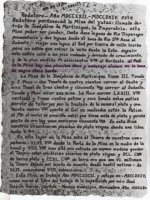99thpercentile
Full Member
- Nov 2, 2006
- 151
- 117
- Detector(s) used
- Geonics EM61-MK2, Geophex GEM-3, GapEOD UltraTEM III, Minelabs F3, Foerster MINEX 2FD 4.500
- Primary Interest:
- All Treasure Hunting
What do the member of this forum use as their definition of a treasure cache? The reason I ask is that from a geophysical approach, what the target is, how big it is, and how deep it is would affect the choice of method and the survey design.
I assume that the pirate ship from the Goonies would ce classified as a cache.
I assume a jar of coins would be a cache.
I assume a buried safe would be a cache.
What do you define as a cache?
I assume that the pirate ship from the Goonies would ce classified as a cache.
I assume a jar of coins would be a cache.
I assume a buried safe would be a cache.
What do you define as a cache?




